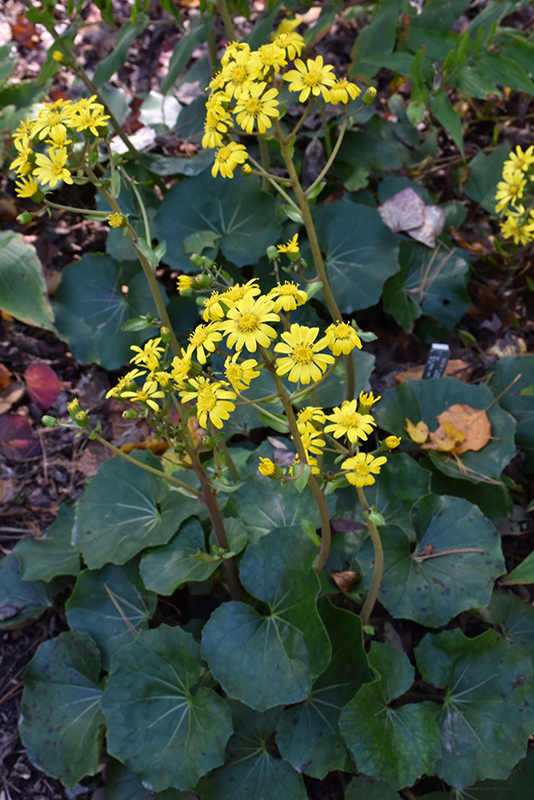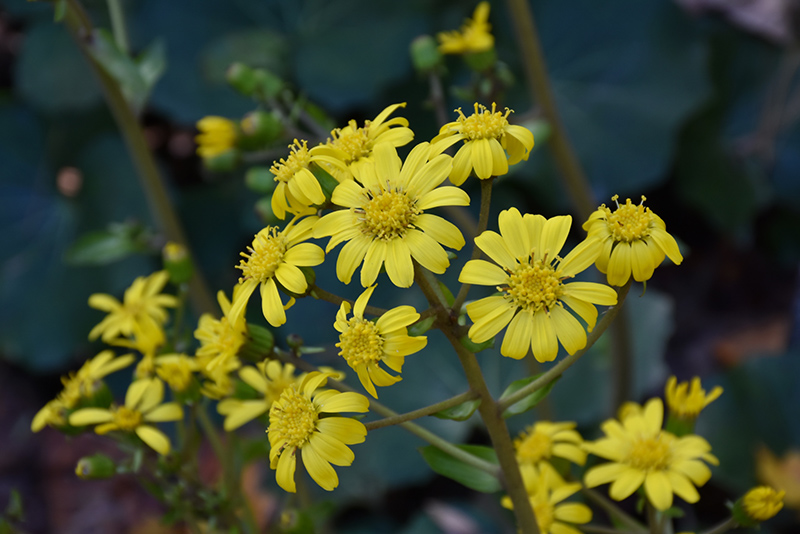Plant Height: 18 inches
Flower Height: 24 inches
Spread: 24 inches
Sunlight:
![]()
![]()
Hardiness Zone: 6b
Other Names: Ligularia tussilagina
Description:
This variety has lush, glossy dark green leaves and yellow daisy-like flowers that sit atop stalks, rising above the foliage; a great accent in shade gardens, works well in containers
Ornamental Features
Leopard Plant has spikes of yellow daisy flowers rising above the foliage from early to late fall. Its attractive glossy round leaves remain dark green in color throughout the year.
Landscape Attributes
Leopard Plant is an herbaceous evergreen perennial with tall flower stalks held atop a low mound of foliage. Its relatively coarse texture can be used to stand it apart from other garden plants with finer foliage.
This is a relatively low maintenance plant, and is best cleaned up in early spring before it resumes active growth for the season. It has no significant negative characteristics.
Leopard Plant is recommended for the following landscape applications;
- Accent
- Mass Planting
- General Garden Use
- Container Planting
Planting & Growing
Leopard Plant will grow to be about 18 inches tall at maturity extending to 24 inches tall with the flowers, with a spread of 24 inches. Its foliage tends to remain dense right to the ground, not requiring facer plants in front. It grows at a medium rate, and under ideal conditions can be expected to live for approximately 10 years. As an evegreen perennial, this plant will typically keep its form and foliage year-round.
This plant does best in partial shade to shade. It does best in average to evenly moist conditions, but will not tolerate standing water. It is not particular as to soil type or pH. It is somewhat tolerant of urban pollution. This species is not originally from North America. It can be propagated by division.
Leopard Plant is a fine choice for the garden, but it is also a good selection for planting in outdoor pots and containers. With its upright habit of growth, it is best suited for use as a 'thriller' in the 'spiller-thriller-filler' container combination; plant it near the center of the pot, surrounded by smaller plants and those that spill over the edges. Note that when growing plants in outdoor containers and baskets, they may require more frequent waterings than they would in the yard or garden.


